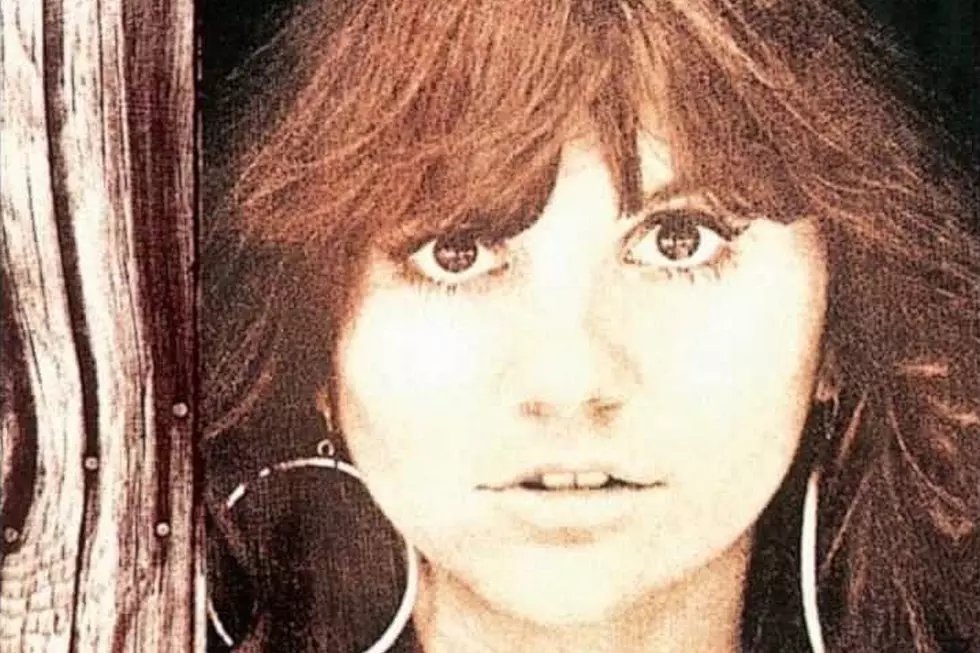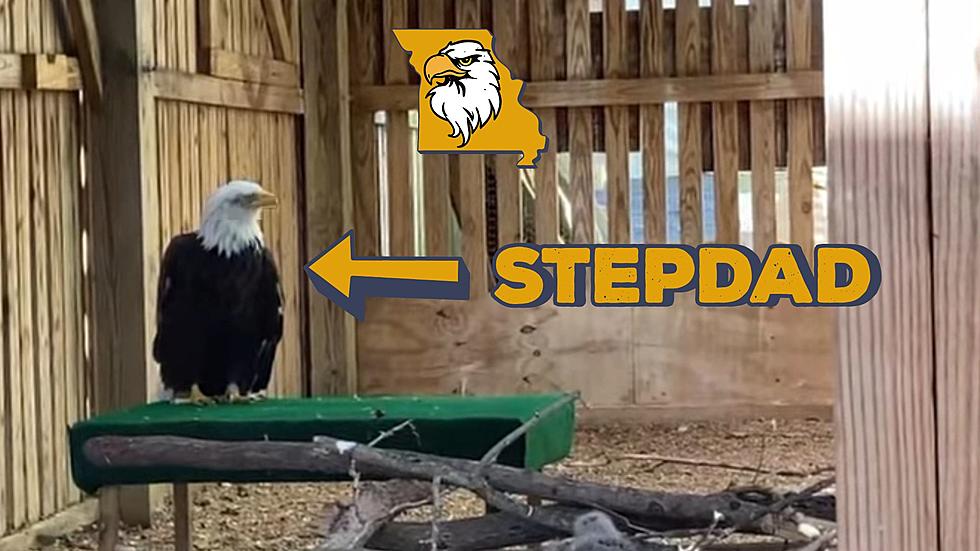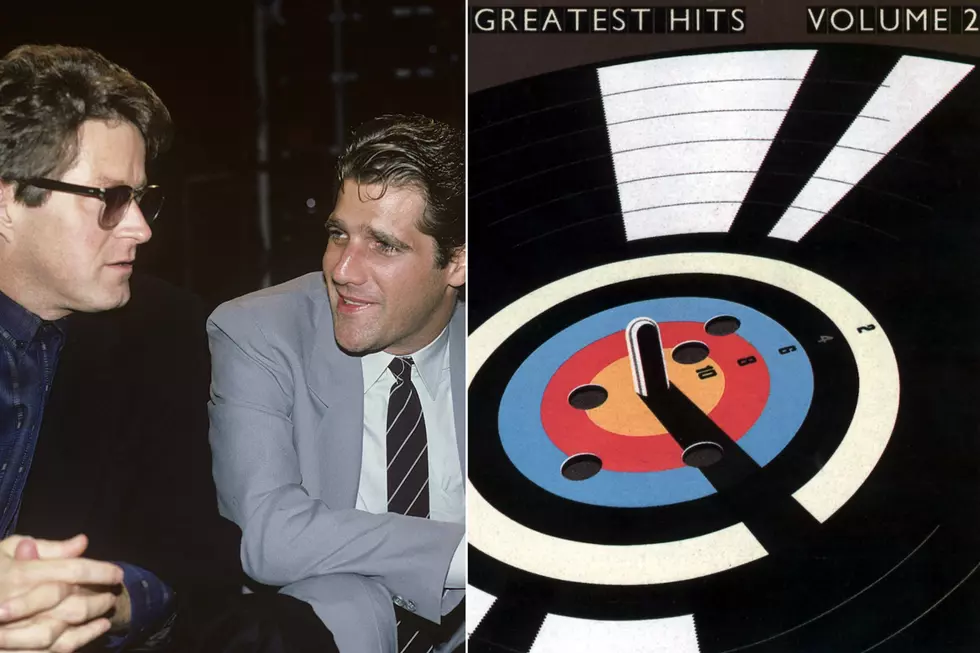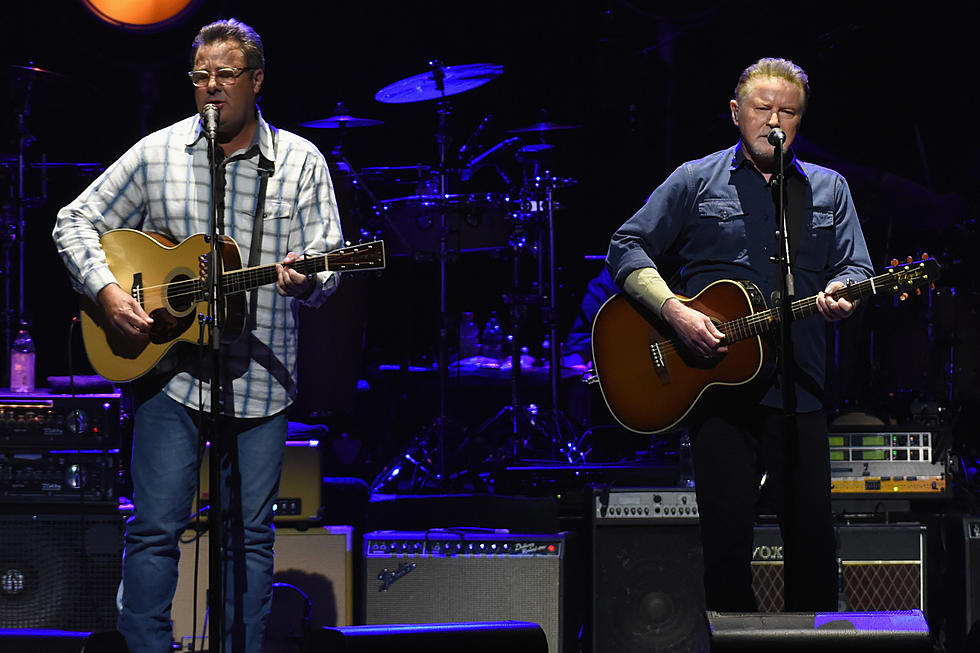
How Linda Ronstadt’s Self-Titled LP Allowed Eagles to Fly
Linda Ronstadt's eponymous third LP was an abysmal chart failure, stalling at No. 163 on the Billboard pop album chart. It led to her departure from Capitol Records.
It was also the first time anybody heard the Eagles.
Released on Jan. 17, 1972, Linda Ronstadt featured all four members of the pioneering country-rock band – months before their debut album arrived. Ronstadt had asked Glenn Frey to assemble a backing group prior to these sessions, and he turned to former indie label-mate Don Henley. (They'd quietly begun their careers by signing to Amos Records when Henley was with a band called Shiloh and Frey was in Longbranch Pennywhistle with Ronstadt's erstwhile boyfriend J.D. Souther.)
"Glenn asked if I'd like to go on the road with Linda Ronstadt's band, and I said: 'You bet I do,'" Henley told the Globe and Mail in 2008. "I was broke, and here was a chance for $200 a week. We went out for a month or two, and Glenn and I struck up this great friendship. That's when we started plotting to put a band together."
But first Frey and Henley backed Ronstadt on her cover of Jackson Browne's "Rock Me On the Water," "I Fall to Pieces," Neil Young's "Birds," "I Ain't Always Been Faithful" and "Rescue Me" for this self-titled album. Future bandmate Randy Meisner also sang backup on "Birds" and "Rescue Me," putting three Eagles together on vinyl for the first time. Bernie Leadon then joined Meisner on "In My Reply," and also appeared on "I Still Miss Someone" and "Ramblin' 'Round."
Portions of Linda Ronstadt were recorded in March 1971 at the Troubadour, the Los Angeles nightclub where the Eagles initially congregated while trying to make a name for themselves as West Coast transplants. That's where Ronstadt first heard Henley play.
After hours, Frey and Henley would work on their own songs. They ended up with enough material to start and complete Eagles just one month after Linda Ronstadt arrived.
"In those days, we didn't have enough money to put people in separate rooms, so Glenn and Don were rooming together and they each discovered the other could sing and was a great songwriter," Ronstadt told Billboard in 2016. "Glenn used to call Don his secret weapon. He said, 'I'm gonna do a band with Don. We're gonna do a band together.' I said, 'That’s a great idea.'"
Listen to Linda Ronstadt Perform With Three Future Eagles
By the time the touring cycle for Linda Ronstadt was over, something new had sparked. The Eagles officially formed a separate group, even though they were part of an emerging genre that didn't yet have a name.
"From the first rehearsal, I felt we were working on a style of music none of us had ever heard before. Two years later, people called it 'country-rock,'" Frey said while inducting Ronstadt into the Rock & Roll Hall of Fame in 2014. "While touring with Linda that summer, Don and I told her that we wanted to start our own band – and she, more than anyone else, helped us put together the Eagles."
Both acts signed with Asylum Records, an artist-friendly label recently founded by David Geffen. But Ronstadt still owed Capitol one more album. Ironically, the chart-topping, Grammy-winning Heart Like a Wheel became her breakout moment. Frey, Henley and Timothy B. Schmit – who'd later succeed Meisner in the band – took part in those sessions, too.
By then, the Eagles had become superstars in their own right – a turn of events that came as no surprise to Linda Ronstadt.
"The first time they started working out their harmonies, they needed a place to rehearse," Ronstadt told the Los Angeles Times in 2016. "J.D. and I had a house we were sharing, and we said, 'You can use our living room.' It was a small place, and there wasn’t really room for six people, so J.D. and I went to the movies.
"When we came back, they had worked up 'Witchy Woman' in that room," Ronstadt added. "They tuned their voices to each other in that room. It was the best I ever heard that song sung. It was just amazing. I knew then they were going to have hits. There was no doubt in my mind."
44 Famous Records You Probably Didn't Realize Were Covers
Gallery Credit: Dave Lifton
See the Eagles in Rock’s Craziest Conspiracy Theories
More From Mix 92.3










